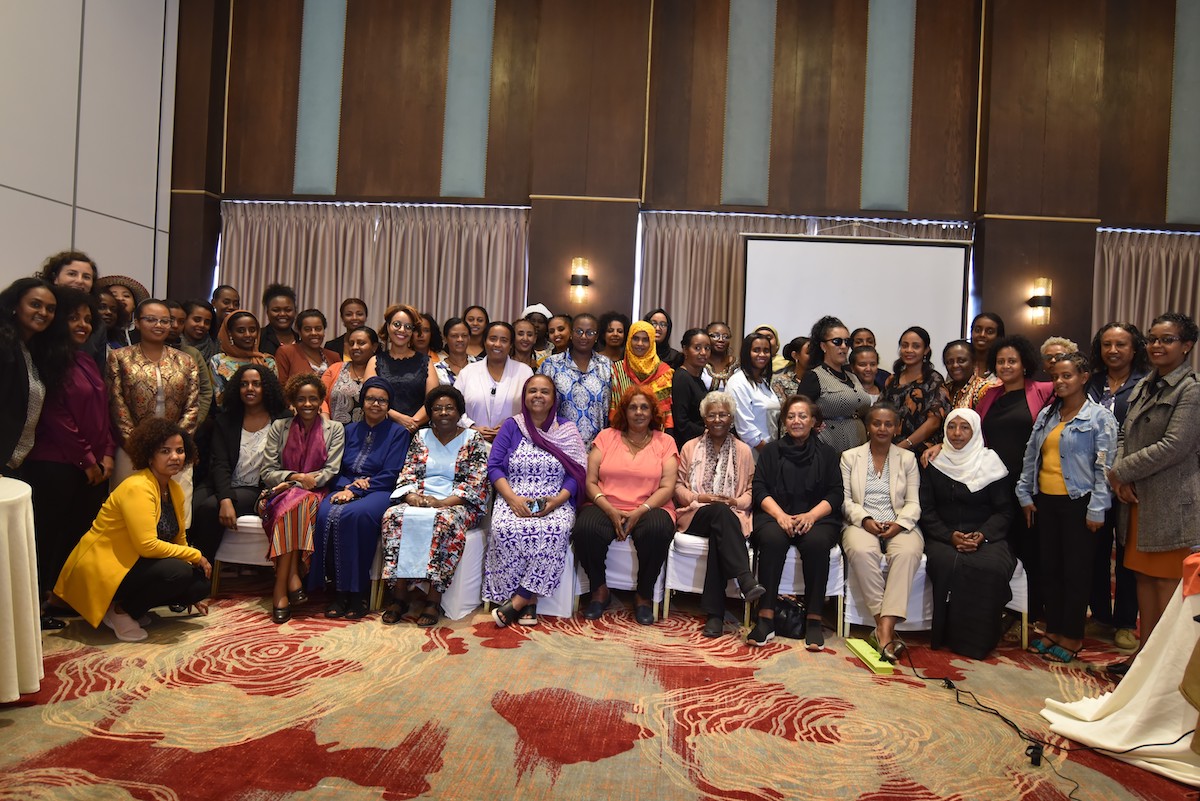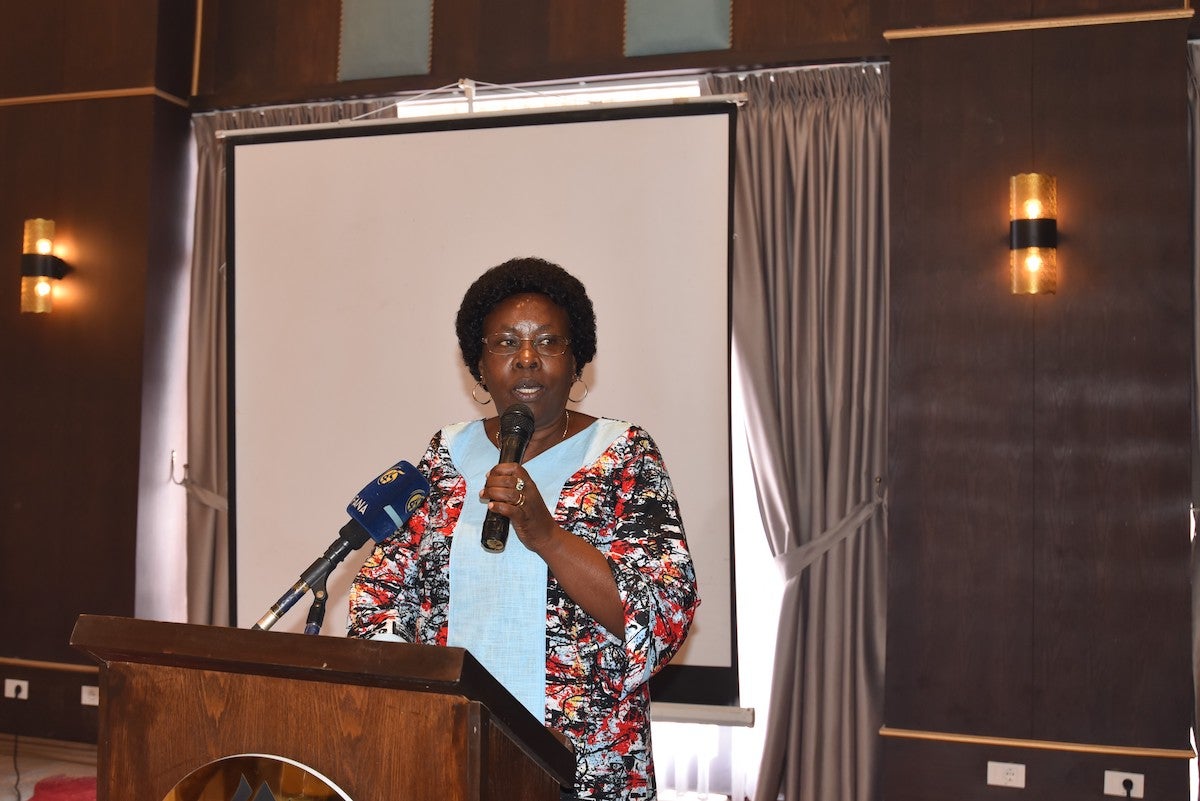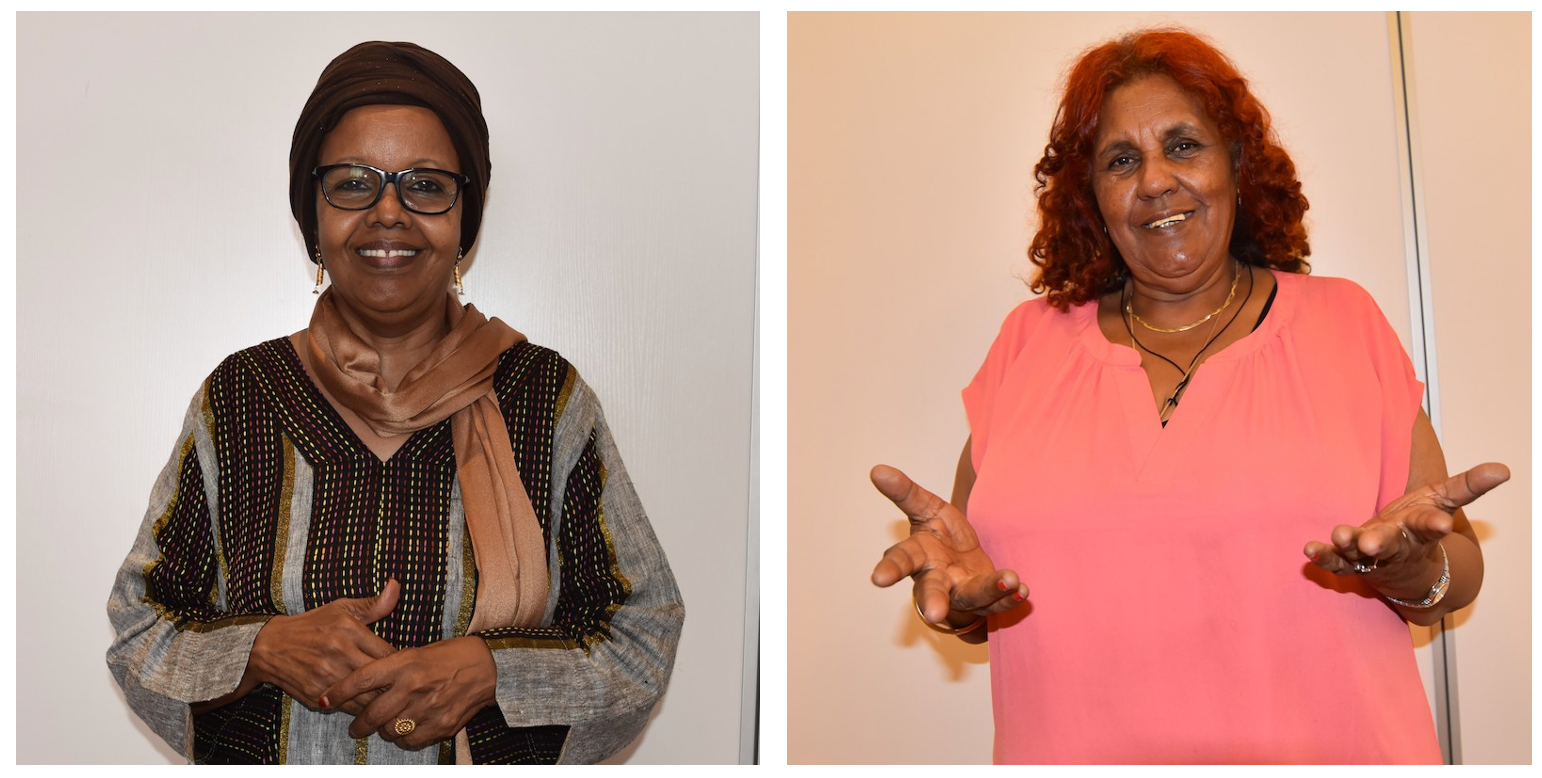UN Women in Ethiopia supports women only consultation to inform a gender sensitive transitional justice policy
Date:
UN Women Ethiopia Country Office in partnership with the Ministry of Justice through Transitional Justice Working Group of Experts (TJ-WGE) and the Ministry of Women and Social Affairs, organized a high-level national consultation with women from diverse backgrounds to discuss on the policy options for transitional justice; which aims to ensure women’s meaningful participation and voice in the development of inclusive and gender sensitive transitional Justice Policy for Ethiopia.
The two-day event held from 9-10 June 2023, in Bishoftu town, Oromia region was attended by sixty women participants from women-led Civil Society Organizations, women rights organizations, women advocates, feminist groups, women influencers, female university teachers, women human rights defenders, female media professionals, female service providers to survivors of violence, community representatives and UN agencies.

Ms. Cecile Mukarubuga, UN Women Country Representative, in her opening remarks for the consultation said: “Women must be included in all stages of the transitional justice process, from the design to the implementation of the policy. This is in line with Ethiopia's commitment to include women in different decision-making processes as per the constitution, national legislations, international human rights standards and commitment for Women, Peace and Security agenda.” Since women were part of the conflict; Ethiopian women hold the right to be part of the peace process and to contribute for the sustainability of peace. UN Women Ethiopia is committed to fostering gender equality and ensuring that women's voices are heard at every level of decision-making. As we move forward, let us remember that women's rights are human rights, and we must work together to create a just, inclusive, and peaceful society for all.”

Dr. Tadesse Kassa, Head of Inter-Ministerial task force secretariat, in his welcoming remarks highlighted on the importance of involving women as well as on the commitment of the Working Group of Experts and the Government of Ethiopia to ensure women voices are represented, “Today’s consultative event is a demonstration of the commitment of the Working Group of Experts, and the Government to ensuring that the voices of women are represented in all forms and contexts. You all agree with us that the central concern of any legitimate consultations process should be to solicit the views and insights of persons that are most affected and often marginalized, which is usually the case with women in Ethiopia. So far, we have noticed from the limited rounds of regional consultations that whenever they are given the opportunity, whenever they are not overlooked or marginalized, women could really become owners and proactive actors in any policy design process.”
AAs part of the consultation, introduction to transitional justice, gender perspectives in transitional justice processes based on lessons learned from other countries was presented by International Center for Transitional Justice followed by identification of transitional justice policy options through group works, prompted ways of gendering the transition justice policy.

AAAccording to Ms. Fowsia Abdulkadir, the Deputy Commissioner at the Somalia Regional State Truth and Reconciliation Commission from Jijiga, the main benefit of involving women in the consultation is to make the Transitional Justice policy sustainable, “It is essential for women to involve so that they can anchor it at community and at institutional levels.” She added that there should be a mechanism to reach the majority women at the community and village levels including in the rural areas and hear their voices. She said that policy is an abstract concept for women in such areas struggling with everyday life. She suggested a two-step approach; first to raise their awareness on what a transitional justice means for them and their livelihood as well as how it impacts them. Once made aware, to engage them in such consultations.

Another participant, Ms. Yemwodesh Bekele, the founder and the Director of a Civil Society Organization , Women Can Do it, not only contributed in the consultation but also became better informed including on how to deal with conflicts, “ I was not at the places where conflicts were practically happening. Depending on media alone for such information is not always reliable. From this consultation, I am able to understand women’s conditions during conflicts and the approaches in justly solving them.” According to her, women only consultation is the key to make women get fair justice through the policy being developed.
In Ethiopia, women and girls have been affected by conflict related sexual violence, rape, gender-based violence and more. In addition, other human right violations have created a rift in the society and they need to be addressed. The Government of Ethiopia has initiated a comprehensive national transitional justice consultation process that will lead to a related policy. To this end, the Ministry of Justice has established the ‘Transitional Justice Working Group of Experts (TJ-WGE)’, which is mandated to lead the designing of a comprehensive and context-specific transitional justice policy. To ensure the transitional justice policy, processed under TJ-WGE includes voices of women at various levels, UN Women technically and financially supported the two-day women only consultation under its programs; Ending Violence Against Women and Girls(EVAWG) and Women Peace and Security and Humanitarian Action (WPSHA) funded by Government of Norway, Government of Netherlands, Government of Sweden, and Irish Aid.